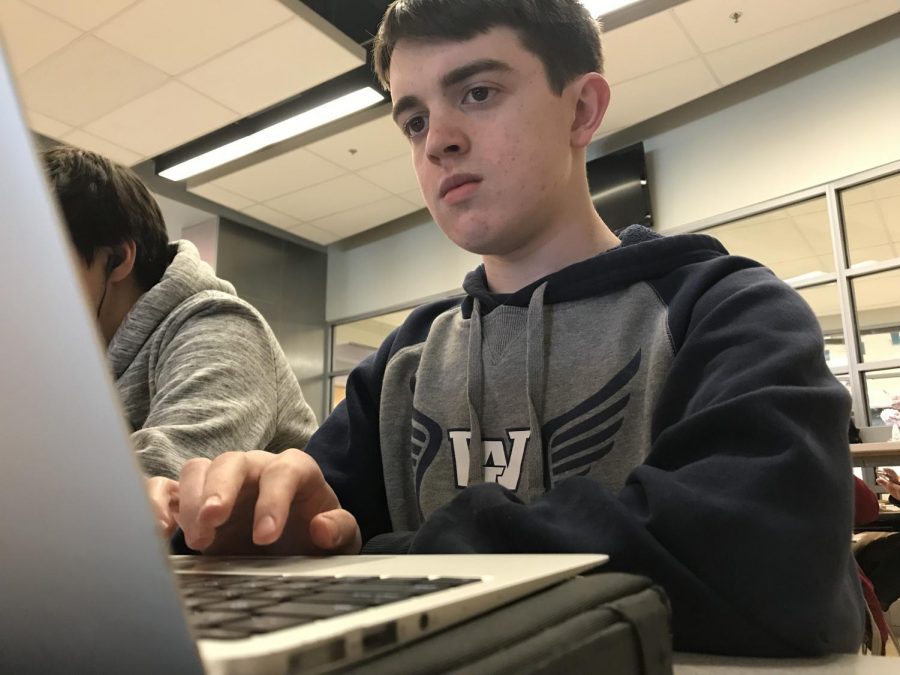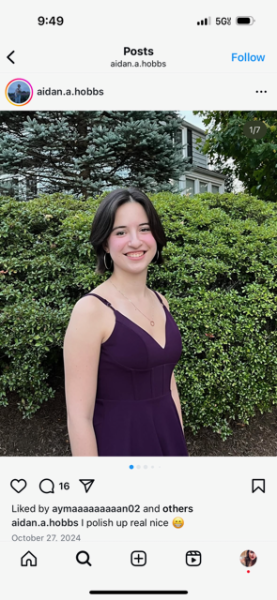Unsolicited college emails
Senior Conor Clark checks his email, which is often filled with unopened messages from numerous colleges, which sometimes mislead students.
All students are asked to give their email when signing up for Advanced Placement (AP), International Baccalaureate (IB), SAT, ACT and PSAT testing, but what many do not expect is receiving incessant emails afterward from colleges looking for applicants. These colleges tend to be ones that students are not at all acquainted with, nor have much interest in. To many, these emails are a nuisance, often being misleading and vague, but to some students, there are benefits to receiving these emails.
Colleges are able to obtain students’ emails by searching the College Board database. Organizations can search by any attribute students have except disability, self-reported parental income, Social Security number, phone number and actual test scores. However, besides those, colleges can use the information students fill out on SAT student questionnaires or their PSAT 10 answer sheets to find students they want at their school.
“When students take the SAT or PSAT they have the option to opt into something called the Student Search Service and this does release information to different colleges, programs and organizations,” the school’s college and career counselor, Elysse Catino, said. “There’s a lot of tracking online, especially ad-tracking, so if anyone’s just kind of clicking around at college [websites], colleges and whatever organizations could be getting student emails.”
Some students find that the emails’ content in itself is quite cryptic, and the subject line is often evasive. Colleges do this to avoid having to tell students actual information about how good their school is, keeping the student questioning.
“They basically make it sound very personalized and then it’s a very generic email,” junior Brooke Weizer said. “A lot of the times they’re just trying to get you to agree for them to send you a brochure, and then it doesn’t really have any information about the school. It’s just a random brochure, like, ‘Five tips you need to know’. I wish it had more information about what they offer.”
An example of something a student might read in the subject line of one of these emails could be “____ college thinks you’re worth it” or “you’ve earned my attention”. This could mislead a student to believe the college thinks they are rare, and could potentially lead the student to apply, and waste their time.
“I think a lot of them are misleading and I think a lot of people could say the same thing, because a lot of them read very similar things,” senior Conor Clark said. “It’s sometimes irrelevant messages such as ‘how to apply’ or certain steps that you find you don’t really need to pay attention to.”
Some students also find that receiving all of the emails can be too much. Getting between two to ten emails a day can be a lot when coming from colleges, especially if you are serious about applying, because the emails then need to be read over carefully and considerately.
“I can find them overwhelming at times because they’re colleges that don’t apply to you or you don’t really intend to go to,” Clark said.
Receiving these emails is not all bad, though. Some students feel that getting the emails has opened their eyes to many colleges.
“Especially the winter of my sophomore year when I started receiving emails after taking my PSATs, I was kind of blank-slate in regard to colleges. Definitely some of the emails I got helped me get an idea of what I wanted in a school,” Weizer said.
Getting emails, at the beginning especially, can be very good for students who are unclear in what exactly they are looking for in a college or university. For those who have a strong sense of the path that they want to go on or colleges they are set on getting into, though, the emails can be unhelpful and aggravating.
“You just have to remember that if you go with your gut you’re going to make that right choice, every college is different and every student is different,” Ms. Catino said. “There really is a well-matched school for everyone.”








